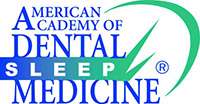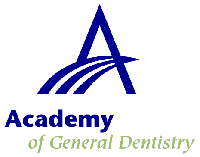Basic Tips for Gum Disease Prevention

Gum disease prevention begins with you and the oral health habits you engage in. Many people realize they may have a problem with their teeth when they find blood on their toothbrush, have frequent bad breath or have red/swollen/tender gums.
According to the American Dental Association (ADA), these are all symptoms of gingivitis, which is an early stage of periodontal disease. If you want to actually engage in gum disease prevention, there are a few steps you need to take on a regular basis to help prevent the onset of gum disease and keep your mouth in good shape.
Preventing gum disease
The first and most important step in gum disease prevention begins at home with your tooth brushing habits. Even if you have the best toothbrush habits of anyone you know, here are few tips you can use in order to help prevent gum disease.
As part of a gum disease prevention strategy, we highly recommend that you use a soft bristle toothbrush, which is small enough to allow the bristles to get into even some of those hard-to-reach places. Any time your brush leaves plaque in a hard-to-reach place, there's the potential that it can lead to gingivitis, periodontal disease, or an even more serious condition.
Proper brushing technique is crucial
When you are brushing your teeth with your soft bristle toothbrush, we recommend that you place your toothbrush at a 45-degree angle against the gum line. In addition, we recommend that you brush your teeth for a minimum of two minutes and use short, gentle strokes on each tooth.
It is also advisable that you brush your teeth in a pattern so you do not miss any critical areas. Improper brushing will risk leaving behind plaque and increasing your chances of gum disease prevention. Gum disease prevention also involves replacing your toothbrush - or old toothbrush head, if you use an electronic toothbrush - a minimum of once every six months. If you are using an old or worn out brush, the bristles can harbor bacteria.
In addition, frayed bristles will not do a good enough job of getting rid of the plaque. If you have ever wondered why your dentist gives you a goodie bag with a new toothbrush when you visit for your six-month visit, now you know the answer.
Flossing is also important
Another outstanding gum disease prevention method is to properly floss your teeth a minimum of once a day, ideally before you head to bed. The best way to do this is to wrap an 18-inch piece of floss around your middle finger in each hand. Without damaging the gum tissue in between your teeth, bring the floss over the gum tissue and around the teeth to go beneath the gum line and floss on both sides of the tooth.
It is important to make sure you clean the floss before moving from one to the other, so you are not transmitting any potential bacteria. Finally, there is no substitute for getting your teeth professionally cleaned to remove plaque and reduce bacterial toxins at least once a year.
Request a dental appointment here: https://stonecanyondental.com or call Stone Canyon Dental at (972) 996-3191 for an appointment in our Sunnyvale dental office.
Recent Posts
Gum disease treatment is necessary for patients whose tooth decay has progressed enough to cause inflammation of the gumline. Without proper treatment, the gum disease will continue to worsen. Dentists have access to specialized tools that patients cannot use in their homes to remedy the issue. While each person’s oral health situation is unique, most…
Gum disease is a serious condition that can result in a need for periodontal treatment. Periodontal treatment is often necessary to destroy the infection and prevent it from worsening. Often, without treatment, a case of gum disease can become advanced, resulting in tooth loss, receding gums, and even jaw deterioration, all of which can be…
Proper dental hygiene, including brushing, flossing, fluoride use, and regular dental examinations and cleanings, is necessary for more than just cosmetic reasons. One of the consequences of not taking good care of teeth and gums is gum disease, which is also called periodontal disease. There are three stages of this disease, and if it is…
Gum disease can be caused by any number of things, but the result is always the same - pain and agony. If you take care of your mouth and your teeth, however, it can be avoided. In this article, we’re going to look at some common causes of gum and mouth diseases. Anyone can get gum…







